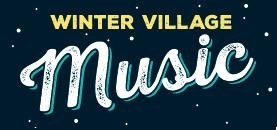Joe Walsh
Mandolin, Guitar & Improvisation
www.joekwalsh.com
Roots music isn't made in a vacuum. It's the creation of a community, of a circle of friends, of a teacher and a student. It’s something to be passed back and forth to be treasured. As an acclaimed master of American roots music, mandolinist and songwriter Joe K. Walsh knows this better than most. He’s toured with countless artists, collaborated with other master musicians like Darol anger and the Gibson Brothers, founded progressive stringband Joy Kills sorrow in the early 2000s, and is currently on faculty at the prestigious Berklee College of Music. His new album, Borderland, is an exercise in subtlety and careful creation. Turning through songs he wrote, or setting the words of Yeats to music, and picking out instrumental tunes of his own creation, Walsh plays and sings with the kind of ease that comes from years of practice and creation.
The touch of sawdust in his vocals, or the buzz of the mandolin strings may hint at the deep rural roots of this music, but what he’s creating now is a new kind of tradition. His first inspiration came as a teenager when he heard David Grisman, and then again when first hearing Del McCoury. The music he heard at that young age opened a window to new harmonic possibilities, and started Walsh exploring how to create new American roots music. What’s surprising then is that his new album is no act of wild fusion. Instead, it’s a joyful exploration of just why he loves this old music so much in the first place. With mastery comes restraint. With nothing left to prove, Walsh has dived deeper into the tradition, seeking to craft new music from old roots.
Joe's Workshop Descriptions
Easy tunes that sound good on solo mandolin - We all play by ourselves at home quite a lot. It's always nice to find a tune or two that can sound like a complete story while played on one mandolin. In this class we'll check out one or two of these. (beg/intermediate)
The Golden Eagle - the perfect learning vehicle - The Golden Eagle, a twisty tune played all over the country, is a great vehicle for learning about arpeggios, for working on non-diatonic sections, for checking out different ways to play triplets, and for working on our right hand string crossing chops. Plus it's a fun melody. We'll learn the tune, and then learn some larger concepts that the tune demonstrates. (intermediate/advanced)
Dawg mandolin - David "Dawg" Grisman has written some of the most classic mandolin and string band melodies, and his tunes are loved and played everywhere. We'll learn a couple of the friendlier Dawg tunes. (intermediate/advanced)Fingerboard layouts - We will develop our knowledge of fingerboard pathways, using arpeggios patterns, working towards being able to play a simple blues in every key. (intermediate)
Fingerboard layouts - We will develop our knowledge of fingerboard pathways, using arpeggios patterns, working towards being able to play a simple blues in every key. (intermediate)
Moveable and changeable chord shapes, or how G C and D can give you all the chords you'll ever need - The three simplest chord shapes (G C and D) that we learned way back when we first picked up the mandolin can be moved and modified to give us all other chords that we might eventually need. In this session we'll work on moving and changing these chords, working our way up being able to play chords on a simple jazz standard.
Doublestops - Doublestops (two note chords) are a huge part of the mandolin sound, and are hugely helpful in informing our knowledge of how and where to find chord tones. We'll learn some simple recurring patterns that will open up doublestop options to us in every key. (beg/intermediate)
Improvising on a fiddle tune - in this class we'll learn a simple diatonic fiddle tune, and then we will use this fiddle tune as a vehicle for exploring various ways of improvising melodically. (intermediate/advanced)

